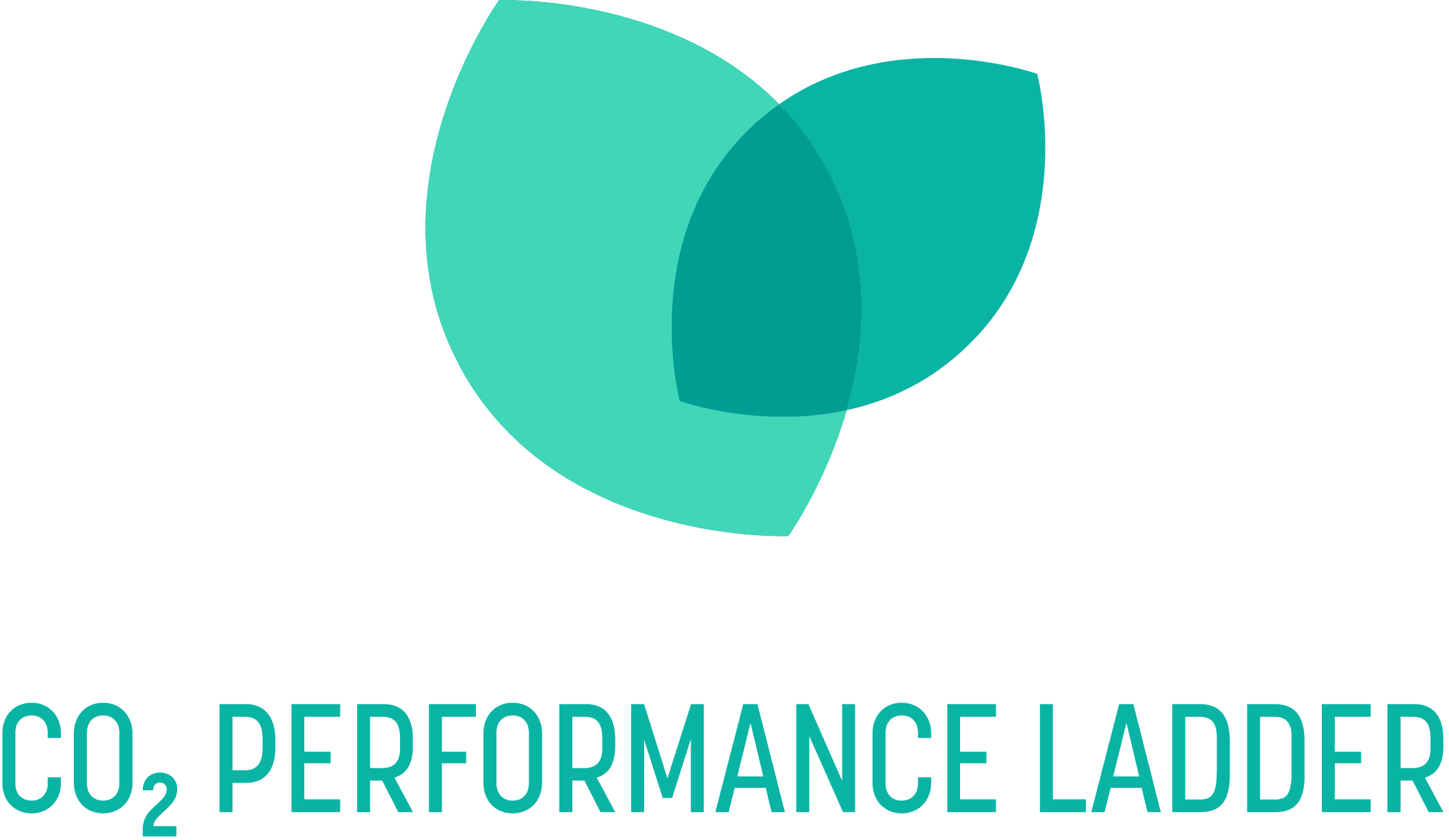have us call you right now.
Carbon footprint management
Take action in line with best practices




The what
The why
Save money
Reduce operational costs by making conscious choices
Compliance
Anticipate new legislation such as CSRD and VSME
Competitive advantage
Sustainable companies outperform peers
Employer branding
More and more employees want to see action from their employer
Finance opportunities
Get access to sustainability linked loans
It's time for action
Take responsibility for your emissions by measuring them
Further reading: the business case of sustainability
Explore client cases
Process
Data analysis and processing
Our AI cleans and analyses your data and matches it against our dataset of 20,000 emission factors. Your Project Manager verifies the results.
20,000 best practice emission factors
Human-in-the-loop for controle and analysis
Average timeline: insights in one month

Understand, reduce & offset
After completing your GHG assessment, you’ll gain insights into your emission hotspots and will be ready for further action.
Reduce emissions
Identify emission reduction measures
Generate a reduction pathway with ease
Offset emissions
Support projects verified against 100+ data points
Follow project progress through an Impact Dashboard
What is the Greenhouse Gas Protocol?
The Greenhouse Gas (GHG) Protocol is the world’s leading framework for measuring and managing greenhouse gas emissions across Scope 1, Scope 2, and Scope 3, helping businesses accurately assess their carbon footprint. Widely adopted by sustainability standards such as CDP, CSRD, and the Science Based Targets initiative (SBTi), the GHG Protocol ensures consistency, transparency, and credibility in corporate climate reporting and emissions reduction strategies.
To learn more about the Protocol, read our blog.
How accurate is the calculation?
Regreener’s Carbon Calculator delivers reliable and actionable carbon footprint estimates by combining activity-based and spend-based methodologies—ensuring a practical balance between data availability and accuracy, aligned with GHG Protocol standards and suitable for audit-ready reporting.
Why should my company measure its carbon footprint?
Carrying out your own carbon assessment not only contributes to the global goal of reducing greenhouse gas emissions and combating climate change, but it also offers several strategic advantages:
Meet customer expectations: consumers, especially younger generations, increasingly favor businesses that prioritize sustainability.
Control operational costs: identifying and addressing inefficiencies can reduce expenses.
Attract investors: sustainability initiatives can make your business more appealing to socially responsible investors.
Enhance brand image: demonstrating climate action can strengthen your reputation and differentiate your brand.
Prepare for future regulations: stay ahead of evolving environmental laws and compliance requirements.
How does Regreener calculate my company's emissions?
We conduct our CO₂ measurements in accordance with the Greenhouse Gas (GHG) Protocol, the leading global standard for measuring and managing greenhouse gas emissions. Developed by the World Resources Institute (WRI) and the World Business Council for Sustainable Development (WBCSD), the GHG Protocol provides comprehensive guidelines and tools for organizations to accurately measure, manage, and report their emissions.
Understanding GHG Protocol Scopes
The GHG Protocol categorizes emissions into three distinct scopes: Scope 1, Scope 2, and Scope 3. Here’s a quick breakdown:
Scope 1 – Direct Emissions:
These are emissions from sources that are owned or controlled by the organization. Examples include emissions from on-site fuel combustion, such as gas heating systems, company-owned vehicles, or industrial processes.Scope 2 – Indirect Emissions from Energy Use:
Scope 2 covers indirect emissions from the consumption of purchased energy, such as electricity, steam, or heating and cooling. While these emissions occur off-site, they are directly tied to the organization’s energy consumption.Scope 3 – Other Indirect Emissions (Value Chain):
Scope 3 encompasses all other indirect emissions generated across the organization’s value chain. These may include emissions from:The production and transportation of purchased goods (e.g., IT equipment or office supplies)
Business travel and employee commuting
Waste disposal and logistics
The production of food consumed by employees
Does my organization need to allocate time for a CO2 measurement?
Yes, if you choose self-service: You'll need to invest time in gathering data, entering information, and managing the measurement process using our tools and guidance.
No, if you choose our full-service option: We handle the entire process for you, from data collection to reporting. This option comes at an additional cost but requires minimal time and effort on your part.
Further readings on a carbon assessment
Are you ready to take climate action?
Join 200+ companies making impact with Regreener













